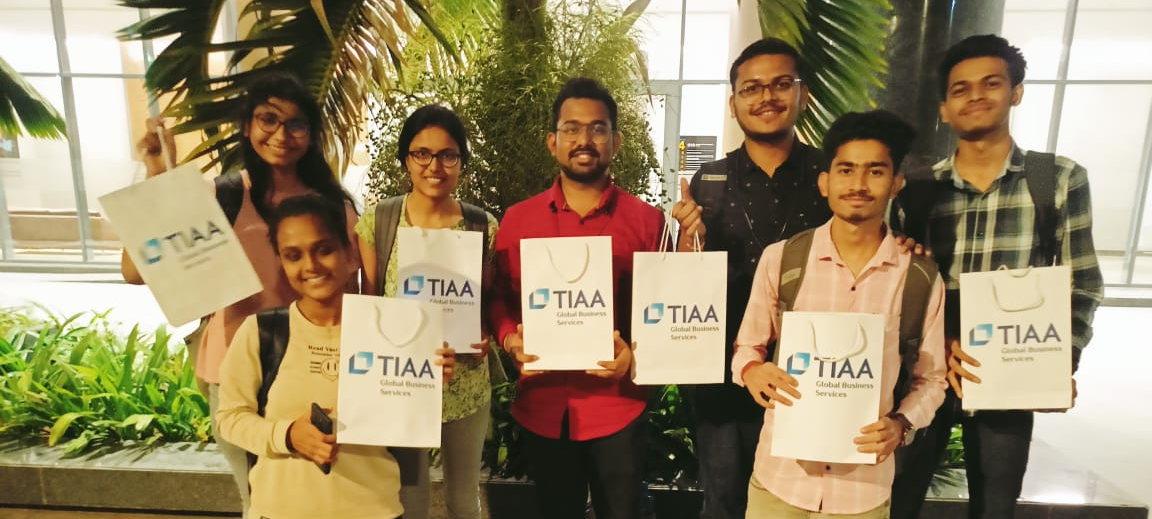



About CSE Dept.
After established in 1986, the department has groomed many professionals, who have today, carved a niche for themselves in this field in India and abroad. Internet and laboratory facilities are provided to the students round-the-clock. Our departmental magazine helps in bringing the latent potential of our students to the forth and highlights research activities.
The department introduces students to the latest trends in technology, like mobile computing, multimedia systems, distributed computing, artificial intelligence, parallel architecture and computing, neural networks, etc. The curriculum includes basic subjects such as operating systems, database management, microprocessors, data structures and computer algorithms as well.
Our students’ present research papers in the seminars and conferences at National and International level. They are actively involved in developing software and participate in various sports at university/state level with equal enthusiasm.
Vision
To be a competitive teaching entity in computer engineering in the country and the region and to produce graduates with international recognition for their knowledge and skills, who are capable of taking a leadership position in the board aspect of computer engineering.
Mission
To keep the academic program at par with internationally recognized programs incorporating the rapid changes that are taking place in the industry, teaching/coaching students to acquire the knowledge and to develop their soft skills, and to enhance their career mobility internationally, making sure that our graduates are:
Able to understand the basic principles that trigger present electronic and computational technology.
Capable of creatively applying their understanding of science and engineering principles to solve problems arising in the career path they choose.
Competent in communicating their ideas clearly applying their understanding of science and engineering principles to solve problems arising in the career path they choose.
PEO
PEO1: To create engineering graduates with advanced knowledge of Computer Science and Engineering who can contribute in propagating Computer Science and Technology.
PEO2: To yield engineering graduates with adequate abilities in Computer Science and Technology who can become successful developers,designers and researchers to fulfill the necessities of Computer Industries.
PEO3: To produce graduates who can figure out, formulate, analyze and solve real life problems confronted in Software Enterprises.
PEO4: To produce graduates who can exhibit skills, professionalism, and ethical attitude required for collaboration in their profession and adapt to current trends through lifelong learning.
PO
PO1: Engineering knowledge: Apply the knowledge of mathematics, science, engineering fundamentals and specialization to solve complex engineering problems.
PO2: Problem analysis: Identify, formulate, review research literature, and analyze complex engineering problems reaching substantiated conclusions using principles of mathematics, natural and engineering sciences.
PO3: Design/development of solutions: Design and develop solutions by considering the public health and safety, cultural, societal, and environmental considerations to complex multidisciplinary engineering problems.
PO4: Conduct investigations of complex problems: Use research-based knowledge and methods including design of experiments, analysis and interpretation of data, and synthesis of the information to provide valid conclusions.
PO5: Modern tool usage: Create, select, and apply appropriate techniques, resources, and modern engineering and IT tools including prediction and modeling to complex engineering activities with an understanding of the limitations.
PO6: The engineer and society: Apply reasoning informed by the contextual knowledge to assess societal, health, safety, legal and cultural issues and the consequent responsibilities relevant to the professional engineering practice.
PO7: Environment and sustainability: Understand the impact of the professional engineering solutions in societal and environmental contexts, and demonstrate the knowledge of, and need for sustainable development.
PO8: Ethics: Apply ethical principles and commit to professional ethics and responsibilities and norms of the engineering practice.
PO9: Individual and team work: Function effectively as an individual, and as a member or leader in diverse teams, and in multidisciplinary settings.
PO10: Communication: Communicate effectively on complex engineering activities with the engineering community and with society at large, such as, being able to comprehend and write effective reports and design documentation, make effective presentations, and give and receive clear instructions.
PO11: Project management and finance: Demonstrate knowledge and understanding of the engineering and management principles and apply these to one’s own work, as a member and leader in a team, to manage projects and in multidisciplinary environments.
PO12: Life-long learning: Recognize the need for and have the preparation and ability to engage in independent and life-long learning in the broadest context of technological change.
PSO
PSO1: Foundation of mathematical concepts: To apply mathematical methodologies to crack problem using appropriate mathematical analysis, data structure and efficient computer algorithms.
PSO1: Knowledge of recent trends: To provide effective and efficient knowledge of recent technologies such as Artificial Intelligence,Cyber Security, Internet of Things etc.
PSO1: Project based learning: To provide platform to the students to develop a new and innovative multidisciplinary projects to cater local industry needs.

